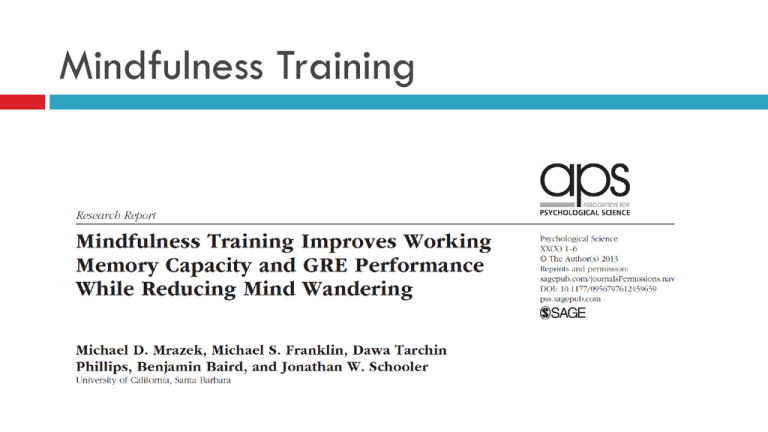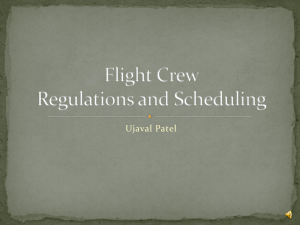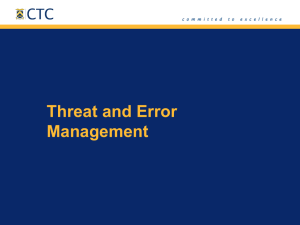PSY401 Spring 2013 3
advertisement

Mindfulness Training Mindfulness Training Mindfulness Training Mindfulness Training Mindfulness Training Part II: Legacy Harlan County, KY Culture of Honor The “culture of honor” hypothesis says that it matters where you’re from, not just in terms of where you grew up or where your parents grew up, but in terms of where your great-grandparents and great-great grandparents grew up and even where your great-great-great grandparents grew up. (p. 170) Culture of Honor Small disputes, high stakes Reputation, status The American South The states in dark red are almost always included in modern day definitions of the South, while those in medium red are usually included. Some sources classify Maryland and Missouri as Southern, with Delaware only rarely grouped within the region. West Virginia is often considered Southern, because it was once part of Virginia Culture of Honor Small disputes, high stakes Reputation, status Culture of Honor Small disputes, high stakes Reputation, status "Ole-Ranl" Hatfield and "Devil-Anse" McCoy http://www.youtube.com/watch?v=CCwe61LzjgI Persistence of Culture of Honor An Empirical Demonstration Cohen et al. Southerners should be More likely to view an insult as damaging More upset by the insult More prepared for aggressive response… An Empirical Demonstration Experiments 1 - 3 The basic “asshole” procedure Experiment 1 Experiment 2 Experiment 3 Experiment 3 Conclusions A male who is insulted but does not retaliate risks having his masculine reputation diminished…When a challenging or highly status-relevant situation is encountered…the person may lash out with violent or aggressive behavior to reassert him- or herself. (Image that appeared when I searched for “violent redneck”) Conclusions Cultural legacies are powerful forces. They have deep roots and long lives. They persist, generation after generation, virtually intact, even as the economic and social and demographic conditions that spawned them have vanished, and they play such a role in directing attitudes and behavior that we cannot make sense of our world without them. (p. 175) The Ethnic Theory of Plane Crashes The Ethnic Theory of Plane Crashes Korean Air Flight 801 Captain 1st Officer “Wiper on” “Not in sight” Flight Eng. 1st Officer Flight Eng. 1st Officer Flight Eng “Eh” “Let’s make a missed approach” “Not in sight” “Not in sight, missed approach” “Go around” Captain “Go around” http://www.youtube.com/watch?v=II4dwx00v28 The Ethnic Theory of Plane Crashes Korean Airlines Crash Rate 1988 – 1998: 4.79 per million departures Dismal safety record The Ethnic Theory of Plane Crashes It is a complex and sometimes strange story. But it turns on a very simple fact, the same fact that runs through the tangled history of Harlan…Korean Air did not succeed—it did not right itself— until it acknowledged the importance of its cultural legacy. The Ethnic Theory of Plane Crashes Avianca Flight 052 “Through it all, the cockpit was filled with a heavy silence” http://www.youtube.com/watch?v=ZCyLgeVUuIE How does the crew communicate? Mitigated Speech Any attempt to downplay or sugarcoat the meaning of what is being said… Don’t bother if it’s too much trouble… How does the crew communicate? Mitigated Speech Any attempt to downplay or sugarcoat the meaning of what is being said… Don’t bother if it’s too much trouble… How does the crew communicate? You notice on the weather radar an area of heavy precipitation 25 miles ahead. [The pilot] is maintaining his present course at Mach .73, even though embedded thunderstorms have been reported in your area and you encounter moderate turbulence. You want to ensure that you aircraft will not penetrate this area. Question: What do you say to the pilot? 1. Command 2. Crew Obligation Statement 3. Crew Suggestion 4. Query 5. Preference 6. Hint Crew Resource Management The Basic Goal Teaching junior crew members to communicate clearly and assertively… Avianca: “All the guys had to do was tell the controller, ‘We don’t have the fuel to comply with what you are trying to do.’ All they had to do was say, ‘We can’t do that. We have to land in the next ten minutes.” S. Ratwatte (right) Crew Resource Management Power-Distance Index Concerned with attitudes toward hierarchy…how much a culture values and respects authority http://www.kwintessential.co.uk/map/hofstede-power-distance-index.html Crew Resource Management Changing the culture of the cockpit Basic goal of CRM Crew Resource Management Our ability to succeed at what we do is powerfully bound up with where we’re from, and being a good pilot and coming from a high-power distance culture is a difficult mix. Crew Resource Management The new cockpit culture English mandatory New communication style Miracle on the Hudson 3:27:36 Flight 1549: "Ah, this, uh, Cactus 1539. Hit birds, we lost thrust in both engines. We're turning back towards LaGuardia." 3:27:42 New York TRACON: "OK, yeah, you need to return to Laguardia. Turn left heading of uh, 2-2-0." U.S. Airways Flight 1549 Miracle on the Hudson 3:28:05 New York TRACON: "Cactus 1529, if we can get it to you, do you want to try to land runway 1-3?" 3:28:11 Flight 1549: "We're unable. We may end up in the Hudson." 3:28:31 New York TRACON: "All right cactus 1549. It's going to be a left. Traffic to runway 3-1." 3:28:34 Flight 1549: "Unable." U.S. Airways Flight 1549 Miracle on the Hudson 3:29:21 New York TRACON: "Cactus 1529, turn right 2-8-0, you can land runway one at Teterboro." 3:29:25 Flight 1549: "We can't do it." 3:29:26 New York TRACON: "OK, which runway would you like at Teterboro?" 3:29:28 Flight 1549: "We're gonna be in the Hudson." U.S. Airways Flight 1549 http://www.wired.com/autopia/2009/11/incredible-new-look-at-us-airways-flight-1549/ Another Crash Landing United Airlines Flight 232 Another Crash Landing What does Denny Fitch’s story teach us about success? United Airlines Flight 232











